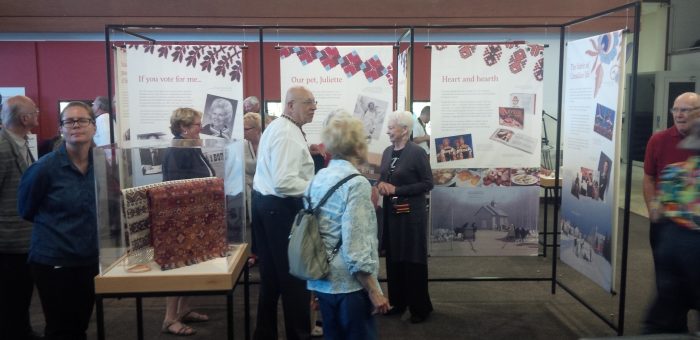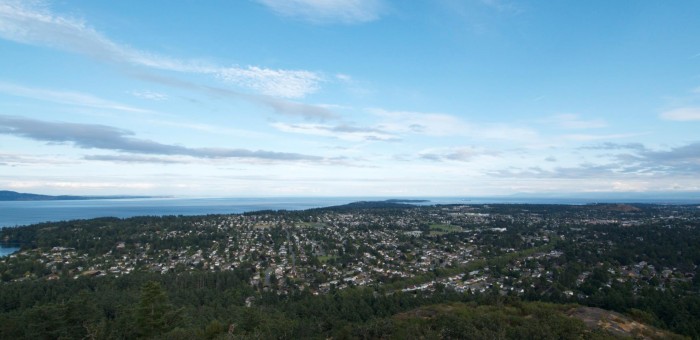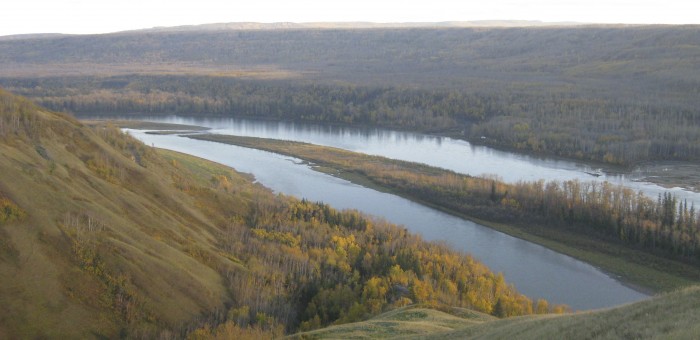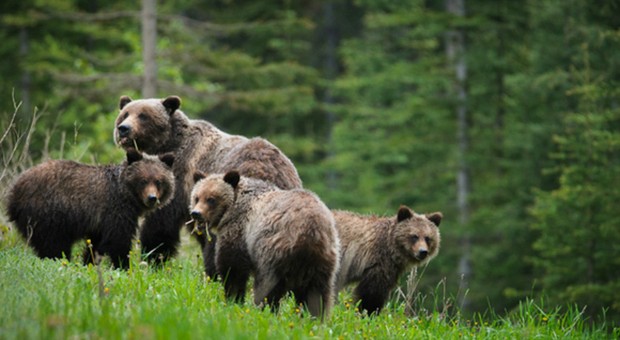Issues & Community Blog - Andrew Weaver: A Climate for Hope - Page 110
Renewing Call to Reform Medical Service Premiums
Media Statement September 15, 2016
Andrew Weaver Renews Call to Reform Medical Service Premiums
For Immediate Release
Victoria, B.C. – While a freeze in Medical Service Plan (MSP) premium increases is certainly welcome, the government has lost the opportunity to fully reform this regressive tax says Andrew Weaver, MLA for Oak Bay – Gordon Head and Leader of the B.C. Green Party.
“British Columbians will see this MSP announcement for what it is, a cynical ploy to gain votes as we head into an election year”, says Andrew Weaver. “We need to eliminate the MSP, not simply tinker around its edges.”
“Over the last three years I have consistently and continually called for the MSP to rolled into the income tax system with premiums calculated on taxable income rather than the current system which is a flat tax no matter what people earn.” says Andrew Weaver. “This would turn a regressive tax into a fair system much like has already been done in Ontario”
In Ontario, if you earn $20,000 or more a year you pay the Ontario Health Premium (OHP). It ranges from $0 if your taxable income is $20,000 or less, and goes up to $900 per year if your taxable income is more than $200,600. Instead of the mail-out system we have in BC, the OHP is deducted from the pay and pensions of those with employment or pension income that meets the minimum threshold.
“Remember – only Ontario’s top earners are paying $900 per year. Right now people in British Columbia are paying $900 a year regardless of whether they earn $42,000 or $4,200,000 a year.”
“As Leader of the BC Green Party I can affirm that a B.C. Green Party government would eliminate the regressive monthly MSP premiums. Instead, a B.C. Green government would introduce a progressive system in which rates are determined by one’s earnings. And a net and substantive administrative savings to taxpayers would arise in rolling MSP premiums into the existing income tax system.” says Andrew Weaver
– 30 –
Background:
Call to eliminate MSP premiums:
Moving Forward with MSP premiums:
Media contact:
Mat Wright – Press Secretary, Andrew Weaver MLA
1 250 216 3382
mat.wright@leg.bc.ca
Celebrating the 125th anniversary of Ukrainian immigration to Canada
Today I had the distinct honour of speaking at the opening of the Royal BC Museum exhibit ‘Bread and Salt‘ celebrating the 125th Anniversary of Ukrainian Immigration to Canada. Below is the text of my speech.
Text of Speech
Good afternoon, добрий день,
It gives me great pleasure to be here at the opening of the Royal BC Museum exhibit celebrating the 125th Anniversary of Ukrainian Immigration to Canada.
On behalf of the constituents in Oak Bay-Gordon Head, I welcome you and sincerely thank those involved for putting the exhibit together.
Ever since Vasyl Ilyniak and Ivan Pylypiw arrived in Quebec from western Ukraine on September 7, 1891, Ukrainian Canadians have played a key role in making Canada what it is today. Now, more than 1.2 million Canadians claim full or partial Canadian heritage. And I am one of them.
My grandfather and mother fled Ukraine as refugees during the Second World War. After several years living in refugee camps and subsequently impoverished conditions in France, they too landed in Quebec, calling it their home for many years. And as was the Ukrainian way, my grandfather eventually returned to farming in Canada, his new country.
There must be something in the blood of Ukrainians that leads them to have such a profound respect and love of the land. In fact, my dream is to one day move onto a small farm.
You can take the Ukrainian out of Ukraine, but you can’t take the love of the land out of the Ukrainian.
Like so many others with stories that are so similar, my family immigrated to Canada so that their children could have a better life. My family instilled in us the importance of hard work, just as so many other descendants of Ukrainian immigrants did with their children
Canadians of Ukrainian descent live throughout Canada but remain bonded by their strong culture — a rich culture and history that we will find displayed in the Royal BC Museum exhibit opening today.
Thank you, Дякую, and enjoy the exhibit.
Radon testing in Gordon Head
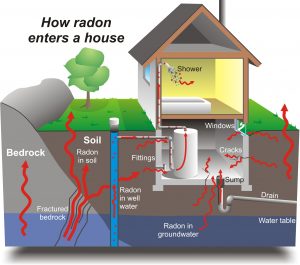 The Canadian Cancer Society has initiated a radon detection program on Vancouver Island. One of the three communities that has been selected is Gordon Head.
The Canadian Cancer Society has initiated a radon detection program on Vancouver Island. One of the three communities that has been selected is Gordon Head.
Radon, produced through the decay of uranium, is a naturally occurring gas whose presence is not detectable through smell, taste or sight. But this same gas is known to be the second leading cause of lung cancer behind smoking and it can build up in homes where naturally occurring radon is present. The good news is that if radon is detected, all homes can be fixed.
As noted by the Canadian Cancer Society in their information package:
Geological maps of uranium deposits demonstrate there is potential for elevated radon levels on Vancouver Island, although limited residential testing has been completed. The Canadian Cancer Society wants to identify radon levels to determine if there is a need for further testing, community education, action, or policy.
If you own a single detached home in the Gordon Head area and would like to participate for free in the Canadian Cancer Society’s research endeavour, please find instructions their information package.
Not too late to change course on Site C dam
Since becoming an MLA I have visited the proposed location of the Site C dam on the Peace River twice. Most recently, on Aug. 23, I travelled a section of the river with a group of concerned community members. It’s hard to fathom the scale of planned development unless you see it in person, just as it’s hard to grasp the human and cultural cost of this project until you listen to the people caught in the middle of it.
Dam construction would flood more than 5,000 hectares of land – drowning homes, traditional lands, scores of culturally important sites, and 15,985 acres of agricultural land.
Local and indigenous people in the area are being systematically stripped of their livelihood and culture by one arm of government, while receiving apologies for past injustices and promises of reconciliation from another.
Compounding the environmental, historical, cultural and agricultural damages is a reckless disregard of energy economics.
Since 2005, domestic demand for electricity in B.C. has been essentially flat, but over the next 20 years BC Hydro forecasts our energy needs will increase by about 40 per cent as a consequence of both population and economic growth. They are selling Site C as the solution to this growing electricity demand, but their argument doesn’t hold water.
Upon completion, the dam would produce 1,100 MW (megawatts, i.e. millions of Watts) of power capacity and up to 5,100 GWh (gigawatt hours, i.e. billions of watt hours) of electricity each year.
Currently only about 1.5 per cent of B.C.’s electricity production is supplied by wind energy (compared to roughly 20 per cent in P.E.I.). With our mountainous terrain and coastal boundary, the potential for both onshore and offshore wind power production is enormous. The Canadian Wind Energy Association and the BC Hydro Integrated Resource Plan 2013 indicate that 5,100 GWh of wind-generated electricity could be produced in B.C. for about the same price as the electricity to be produced by the Site C dam.
A report by the Canadian Geothermal Energy Association noted B.C. also has substantial untapped potential for firm, on demand, geothermal power which could be developed where power is needed.
While costs associated with Site C will be borne by provincial taxpayers (a price tag that will eventually be much more than BC Hydro’s estimate of roughly $9 billion), solar, wind and geothermal project risks are covered by industry. Alternative sources coupled with existing dams could provide enough energy to meet the needs of British Columbians, with the potential to scale up as needed. They would also provide better economic opportunities to local communities and First Nations across the province, with lower impacts on traditional territories.
Instead of a diversified approach to renewable energy, the B.C. government is pushing Site C because they want to offer LNG proponents access to firm power. As I have been explaining for years, however, there will be no B.C. LNG industry in the foreseeable future because of a global glut in natural gas and plummeting prices for imported LNG in Asia. As the government desperately doubles down on LNG, renewable projects are moving elsewhere. Just this year they let a $750 million US investment to build wind capacity on Vancouver Island slip away, despite buy-in from five First Nations, TimberWest, EDP Renewables and the Canadian Wind Energy Association.
I wanted to see how much has been done when I visited Site C this summer. Nothing has passed a point of no return. Proceeding with Site C is actively driving clean energy investment out of the province, but it is not too late to correct our province’s power trajectory.
Applauding Grizzly Bear Foundation inquiry
Media Statement: September 8th, 2016
Weaver applauds Grizzly Bear Foundation inquiry
For Immediate Release
Victoria B.C. – “I welcome the Grizzly Bear Foundation’s inquiry into the status and future of grizzly bears in British Columbia and am supportive of the critical lens through which they are looking at this complex issue,” says Andrew Weaver, the MLA for Oak Bay – Gordon Head and Leader of the B.C. Green Party.
“Expanding our focus beyond trophy hunting is essential. While it is certainly an important factor, both morally and symbolically, and one I do not support, talking about trophy hunting alone is not enough. If we fail to also address poaching and threats to grizzly habitat and food supplies — especially with climate change further compromising essential salmon and huckleberry stocks — we will fail to protect grizzly bears in the long term.
“I am thrilled the Grizzly Bear Foundation shares this view and is so dedicated to the long term survival of grizzly bears in British Columbia, as well as the respectful inclusion of all stakeholders.
“The protection of wildlife and biodiversity for future generation is an issue that is of great importance to me. My research staff and I have worked on this file since I was first elected; we will continue to do so into the upcoming election. Combined with the Auditor General’s report, this new inquiry will lead to positive changes in how we manage and respect grizzlies and other wildlife in B.C.
“I look forward to attending the public hearing in Victoria this October.”
Media Contact:
Mat Wright – Press Secretary, Andrew Weaver MLA
mat.wright@leg.bc.ca
1 250 216 3382


